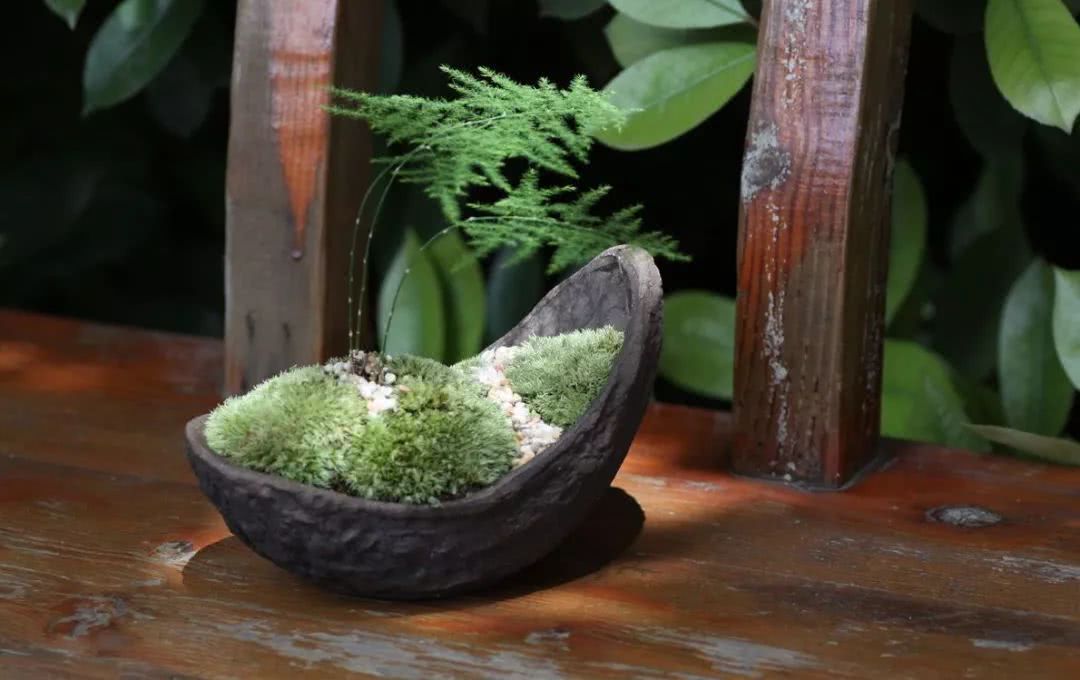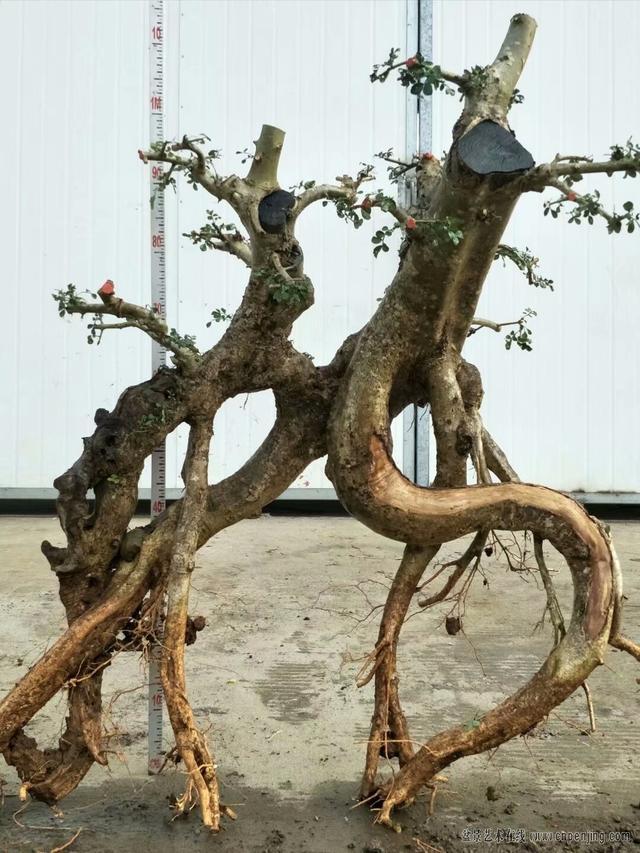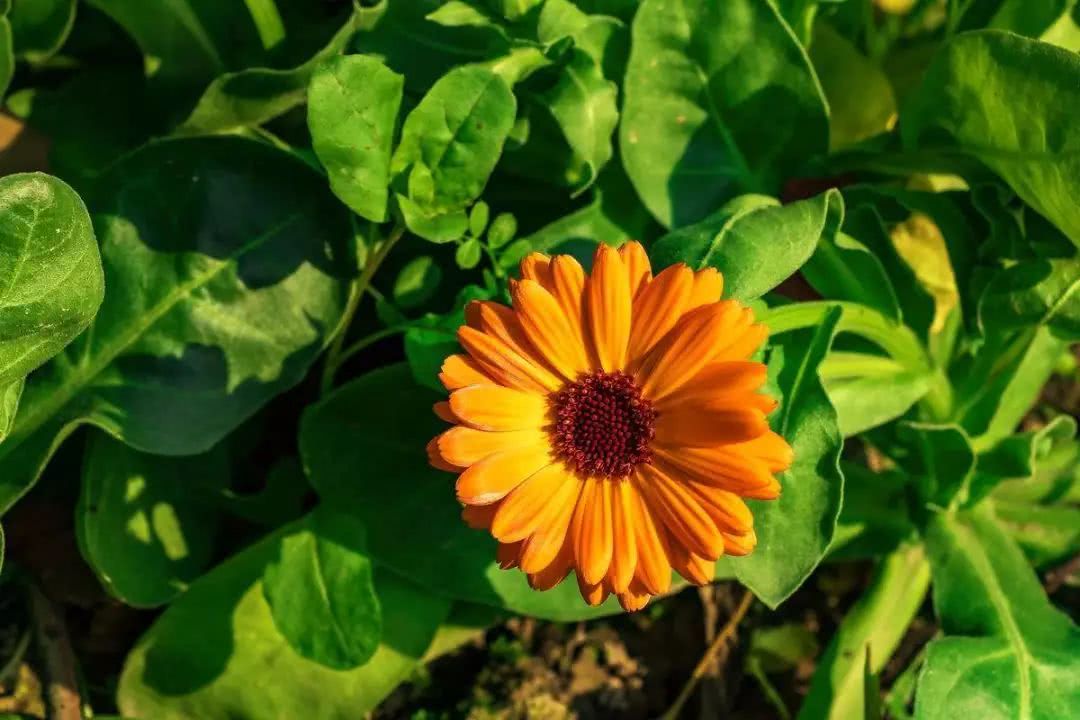The story from the moss the pioneers of the plant world knew her so that they could raise her.

There are a lot of moss articles recently written on the balcony.
Many Taiwan friends have left messages that moss is not easy to raise, and moss cannot be raised at all.
Be silent. Be silent. Be silent.
The director feels that this has nothing to do with planting technology, patience, or preferences, perhaps because we don't know enough about the little thing "moss." if we don't understand it, how can we raise it well?
It must be known that moss is different from other plants!
We try to understand the moss bit by bit, know her good, know her wonderful, know her wonderful, maybe it is natural to raise her well.
In this article, we talk about the survival of moss and how to drive away the pests that want to eat it.
The way of deworming plants in nature
The director first explained that there is often this phenomenon in nature: an insect that feeds on a particular plant will also place its home on the back of the leaves, on the plant, or at the base of the plant, in order to facilitate feeding activities.
Sometimes many kinds of insects like a certain kind of plant, and when this one is full and goes away, the next hungry ghost who is so hungry that he walks and shakes his head comes in a hurry to eat; or several kinds of insects eat at roughly the same time, so that they all come to eat. As a result, the old wounds of the plants have not healed, and new wounds have been added, and the leaves are full of holes, large and small, so how can photosynthesis be carried out?
Plants also have feelings and feelings.
Therefore, for the sake of the ecological balance of nature, the Creator has given plants a special defense ability: secreting toxins and driving away gluttonous insects!
When harmed by caterpillars, willow leaves secrete an extraordinarily bitter alkaloid that reduces the caterpillar's appetite.
If some hungry caterpillars or other insects do not listen to the warning, the leaves will release a hormone that promotes the conversion of linolenic acid to jasmonic acid. Jasmonic acid in turn causes some cells of the leaves to produce an enzyme called protease inhibitor.
This enzyme is so powerful that it can not only cause indigestion in insects, but also help leaf cells produce a chemical called cholecystokinin, which immediately makes gluttonous caterpillars and insects feel like "I'm too full." so these "coaxed" pests immediately turned around and left.
Haha, the willow is really something, ah, play a set of "combined boxing", dizzy pests will slip away foolishly!
In addition, poplars and maples share the same characteristics as willows: when they are attacked by pests, they secrete defensive compounds and quickly spread the message of "having enemies" to their companions, who then spread them to all their companions to defend against pests.
The way to reduce the damage of moss
Plants use the method of "releasing toxins" to protect themselves, and moss will also face natural enemies. How do they protect themselves?.
Scientists have found that bryophyte specimens, which do not need to be sterilized and preserved for a long time, are not easily moldy or moth-eaten.
Because bryophytes themselves contain antibiotics, they can repel all possible invasive mold molecules and even perish together with the invaders.
The scientists found that 56% (or 61) of the 111 species of mosses studied had antibacterial activity against at least one kind of bacteria, especially folded leaf moss, cotton moss and small golden hair moss, which had antifungal activity.
As for the pests, large and small, who have come to "eat for nothing", the active ingredients of the mosses family also make them suffer so much that they have to come excitedly and walk away.
One
Because moss belongs to the "pioneer" of the plant kingdom, more than half of them grow in extremely harsh conditions, and God gives moss the ability to survive in this environment, creating the possibility of survival for more green plants. therefore, unlike those higher-grade plants that grow in a sunny, nutrient-rich, warm and humid environment, most members of moss do not have the function of collecting and storing nutrients.
The conclusion is that most herbivores are not "cold" to moss.
II.
Some microbes that are almost invisible to the naked eye in nature are responsible for decomposing the remains of animals and plants, because rich in cellulose and lignin, the cell walls of moss members are thin and hard, and the decomposers are always put in the last treatment. because it takes time and effort to decompose bryophytes. Or some moss is too rich in some mineral elements, or, for example, peat moss contains too little nitrogen, and so on, so that the appetite of herbivorous animals can not adapt and give up.
In addition to the low nitrogen content, the acidic, immersed and anoxic living conditions they create also reduce the decomposition rate; at the same time, the peat moss and ash moss contain peat moss alcohol also increase the difficulty of the decomposer.
Three
There are also secondary metabolites of bryophytes, which are also very powerful. For example, benzyl benzoate produced by moss metabolism is fatal to gluttonous insects and hard-to-kill mites. As long as it is eaten, it will be "flattened".
In addition, oxalic acid can also make those herbivorous insects (herbivorous insects that feed on living plants) dizzy and uncomfortable, and those who have tasted oxalic acid will never dare to take a second bite.
What makes the director find it very interesting is that since the ancestors of bryophytes 370 million years ago, no virus has existed in bryophytes.
At present, scientists have found that bryophytes have anti-microbial active components, insecticidal and molluscicidal active components, anti-gas active components, plant growth regulation active components, enzyme inhibitory active components, and so on.
It can be seen that the moss family is fully equipped for self-defense, and it is not "easy to mess with" in the plant world.
Moss, isn't this little thing good?
Then again, the more undisturbed plants are, the more emphasis is placed on their own living environment.
Where are her flaws? What will affect her survival?
Through the next search, we are also looking for answers.
Planted on the balcony.
All right, that's all for today. If you have any questions, please leave a message in the message area below.
I don't know if what the station director said was clear and detailed. For those Taiwanese who do not understand it, the director has written a hidden poem for you. It may not be well written, but it can help you find the director.
More wonderful articles are found in a Tibetan head poem:
The breeze caresses the flowers
Wander through Nanshanyang
Sou Qi Qiao Bronze Sparrow platform
Plant red plants on the green clouds
-- to challenge: four poems with hidden head and tail, the first word is connected with the last word, you can get the eight-character motto and summon the head of the stage to be real! Remember to say when you come: "Director, I have cracked your secret."
There is no end to learning on the balcony.
- Prev

Anti-node white wax strange root
Did you like this article? Share it now and let more people know! The content of this site is rich and profound, and the daily hot information selected by Xiaobian is updated at any time. Click on "Receive the latest information first" to browse it. Please continue...
- Next

If you don't understand, can you plant marigold on the balcony and propagate by cutting?
When the director heard his Taiwan friend ask this question, he also thought about it carefully. The answer is: the marigold on the balcony can be propagated by cutting! However, this requires some additional conditions, and listen to the details of the director. If you want a cuttage.
Related
- Wuhan Hospital Iron Tree Blooming Result Was Instantly Frightened by the Gardener Master
- Which variety of camellia is the most fragrant and best? Which one do you like best?
- What is the small blue coat, the breeding methods and matters needing attention of the succulent plant
- Dormancy time and maintenance management of succulent plants during dormancy
- Minas succulent how to raise, Minas succulent plant pictures
- What are the varieties of winter succulent plants
- How to raise succulent plants in twelve rolls? let's take a look at some experience of breeding twelve rolls.
- Attention should be paid to water control for succulent plants during dormant period (winter and summer)
- Watering experience of twelve rolls of succulent plants
- Techniques for fertilizing succulent plants. An article will let you know how to fertilize succulent plants.

